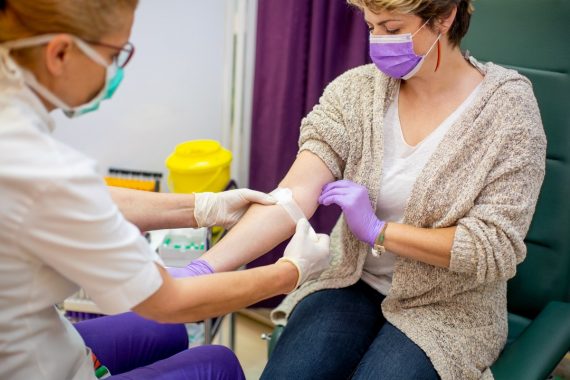Patients unclear on how GPs communicate test results, shows study

A lack of clarity on how test results are communicated in primary care can cause confusion, frustration and anxiety for patients and potential delays in diagnosis and treatment, a GP researcher has warned.
Interviews with patients and GPs highlighted that clinicians expect patients to proactively seek out test results.
Yet patients were uncertain and generally assumed the GP would make contact, which has implications for patient safety if results fall between the cracks, the researcher from the University of Bristol said.
The study was done at six practices in the West of England with patients interviewed at or soon after their blood test and then again when they had the results. GPs who requested the test also took part.
It showed a variety of approaches to communicating test results that were “complex and confusing” and mostly based on habits and routines rather than clear protocols.
Rates of blood testing are rising but tests in themselves do not make people better, unless actions based on the test result lead to a change in patient management or reassurance, the researcher wrote in the British Journal of General Practice.
Practices delivered test results face to face, by telephone, text message or letter and while two surgeries offered online access to results, none on of the patients questioned knew this was an option, the interviews showed.
The approach varied even within the same practice with most doctors making individual decisions about how to share results depending on the patient, the clinical context, and the test results.
But GPs overestimated how engaged patients would be with knowing their results, the study found.
Patients often used guesswork to figure out how they would get their results and were unsure whether they had to chase, assuming if something was wrong someone would let them know.
It often meant a delay in the communication of test results or test results not being communicated at all, the researchers said.
Patients were less keen on results by text message than GPs, with some noting that texts did not provide enough information or that they could come across as ‘flippant’.
Online access to results was available in just two of the practices taking part in the study but none of the participating patients from those practices was aware that they could get their test results in this way.
Study lead Dr Jessica Watson, a GP and NIHR Doctoral Research Fellow at the Centre for Academic Primary Care at the University of Bristol, said: ‘GPs have a medico-legal and ethical responsibility to ensure they have clear, robust systems for communicating test results.
‘New technologies may be incorporated into these systems but are not a panacea. Failure to ensure safe systems for communicating test results could have significant consequences for patients and practices.’
She added: ‘Relying on patients to get in contact and making assumptions about their knowledge of how to do so were particular risks highlighted in our research.’
Pulse July survey
Take our July 2025 survey to potentially win £1.000 worth of tokens

Related Articles
READERS' COMMENTS [1]
Please note, only GPs are permitted to add comments to articles











“Relying on patients to get in contact and making assumptions about their knowledge of how to do so were particular risks”. I never make an assumption these days – it is not even worth it. Common sense is risky business.
It kind of sums it up. Go have a test (which primarily you wanted) then sit on your hands and wait for a pigeon to drop you the message. It is not 1942.
I write in calligraphy the results down to all patients, and do 59 home visits and candle wax stamp them all. It is fun. Whilst they have a smart phone or dial a phone and still guess how to get their results. Hopefully telepathy will be on NICE guidance soon. But then the practices need more than 3 or 4 lines in – which they should already have in place now.
2 lines per 2,000 patients – that’s my rule of THUMB.